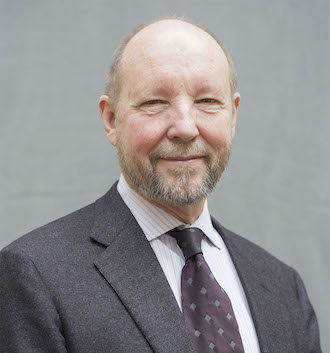Methods for Meta-Analysis: 40 Years of Progress - Online Course
Distinguished Speaker Series: A Seminar Taught by
Larry Hedges12:00pm-3:00pm (convert to your local time)
ABSTRACT
Most statistical training is about methods for the analysis of data from a single study, yet any important scientific or policy problem is typically studied by several investigators. Meta-analysis is the branch of statistics that deals with the analysis of data from several studies investigating the same question. Although the term meta-analysis was only invented in 1976, we will briefly examine the much longer history of meta-analytic research in the physical sciences.
This seminar is an introduction to methods of meta-analysis. We will begin with some reasons why we need special methods for inference from multiple studies. Then we’ll introduce the effect size concept, with specific reference to commonly used effect sizes such as the standardized mean difference (Cohen’s d), the correlation coefficient, the odds ratio, and regression coefficients.
The basic meta-analysis methods are presented, including fixed and random effects models, ANOVA type methods, and meta-regression methods. We will show how these methods can be used with any effect size measure, including unconventional ones. We will then address issues that often arise in meta-analysis, such as dependence among effect size estimates and publication bias. We’ll show how dependence among effect sizes can be addressed using robust variance estimation. We will also show various approaches to publication bias.
Techniques will be illustrated with examples from medicine, physics, and the social sciences, using R software and Comprehensive Meta-Analysis software. We will conclude with a discussion of the meta-analytic perspective on replication and the replication crisis.
This Distinguished Speaker Series seminar will consist of three hours of lecture and Q&A, held live* via the free video-conferencing software Zoom.
*The video recording of the seminar will be made available to registrants within 24 hours and will be accessible for four weeks thereafter. That means that you can watch all of the class content and discussion even if you cannot participate synchronously.
Closed captioning is available for all live and recorded sessions. Live captions can be translated to a variety of languages including Spanish, Korean, and Italian. For more information, click here.
If you are interested in this topic, check out our “Meta-Analysis” livestream seminar taught by David Wilson, May 2-4.
Payment information
The registration fee is $195.
PayPal and all major credit cards are accepted.
Our Tax ID number is 26-4576270.
The registration fee is $195.
PayPal and all major credit cards are accepted.
Our Tax ID number is 26-4576270.

